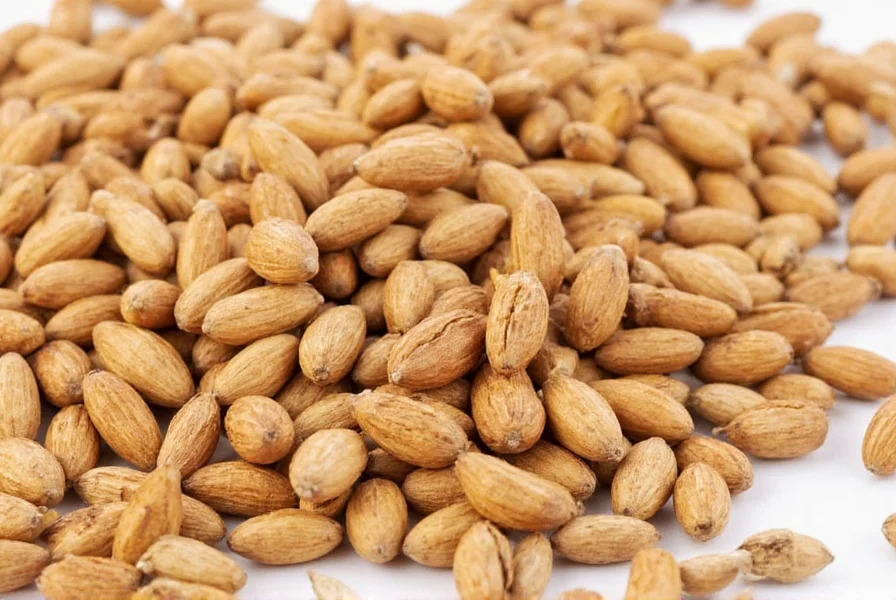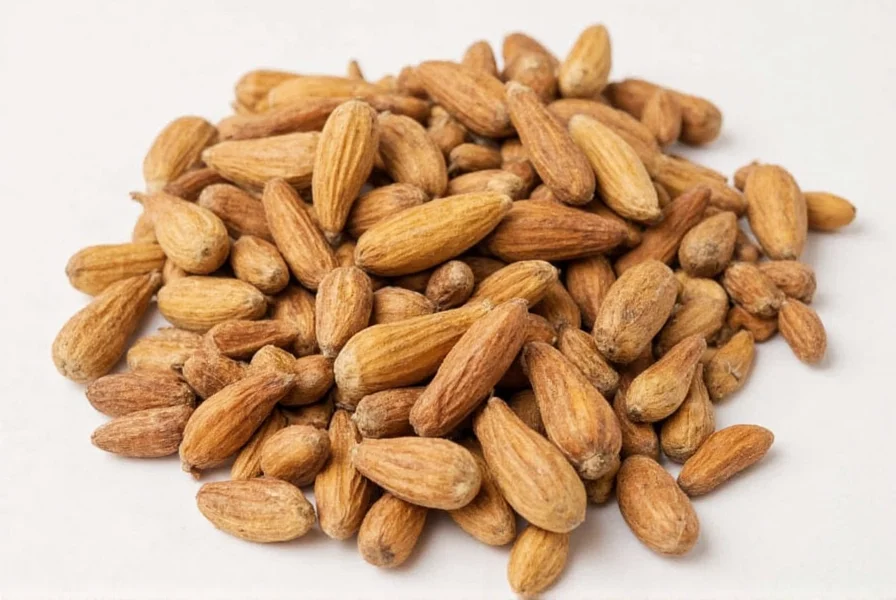Nutmeg, a common kitchen spice derived from the Myristica fragrans tree, has gained attention online for purported psychoactive properties. However, scientific evidence and medical professionals consistently warn that attempting to get high from nutmeg is neither safe nor effective. This article provides factual information about nutmeg's chemical composition, potential effects, and significant health risks based on current medical understanding.
The Science Behind Nutmeg's Psychoactive Claims
Nutmeg contains several compounds, most notably myristicin (approximately 4-8% of its essential oil content). Myristicin is a phenylpropene that, in very high doses, can metabolize into amphetamine-like compounds. However, the amount required to potentially experience psychoactive effects far exceeds culinary use—typically 5-30 grams or more (about 1-6 teaspoons of ground nutmeg).
Research published in the Journal of Ethnopharmacology indicates that myristicin's psychoactive potential is minimal compared to actual recreational substances. The compound has low bioavailability and requires extensive metabolism to potentially produce any central nervous system effects, which explains why nutmeg intoxication is inconsistent and unpredictable.
| Component | Percentage in Nutmeg | Potential Effects |
|---|---|---|
| Myristicin | 4-8% of essential oil | Minimal psychoactive potential at toxic doses |
| Elemicin | 1-2% of essential oil | Similar to myristicin, minimal psychoactive effects |
| Safrole | Trace amounts | Potentially carcinogenic, not significantly psychoactive |
What Happens When You Consume Large Amounts of Nutmeg
Contrary to online claims, nutmeg intoxication is overwhelmingly described as unpleasant rather than euphoric. The timeline of effects typically follows this pattern:
- Onset: 3-6 hours after consumption (significantly delayed compared to most recreational substances)
- Peak effects: 6-12 hours after consumption
- Duration: Can last 24-72 hours
- Common symptoms: Severe nausea, dizziness, rapid heartbeat, dry mouth, blurred vision, anxiety, and disorientation
A 2018 case study in Clinical Toxicology documented multiple emergency room visits resulting from nutmeg consumption, with patients experiencing tachycardia (heart rates over 120 bpm), hypertension, and severe gastrointestinal distress. None reported experiencing what could reasonably be described as a "high"—instead, they described the experience as frightening and physically debilitating.

Significant Health Risks of Nutmeg Intoxication
The dangers of consuming large amounts of nutmeg extend beyond temporary discomfort. Medical literature identifies several serious risks:
- Cardiovascular strain: Tachycardia and hypertension that can be dangerous for individuals with pre-existing heart conditions
- Neurological effects: Confusion, hallucinations, and in extreme cases, seizures
- Gastrointestinal damage: Severe vomiting can lead to esophageal tears and electrolyte imbalances
- Hepatotoxicity: Potential liver damage from metabolizing large quantities of myristicin
- Psychological distress: Anxiety, panic attacks, and temporary psychosis-like symptoms
The European Monitoring Centre for Drugs and Drug Addiction notes that while fatal nutmeg overdoses are rare, they have occurred, particularly when combined with other substances. The margin between a dose that might produce any psychoactive effect and a toxic dose is extremely narrow.
Why Nutmeg Isn't a Viable Recreational Substance
Several factors make nutmeg an exceptionally poor choice for anyone seeking psychoactive effects:
- Unpredictable effects: Individual responses vary widely due to differences in metabolism
- Delayed onset: The 3-6 hour delay often leads people to consume additional doses, increasing risk of overdose
- Unpleasant experience: Most documented cases describe the experience as dysphoric rather than euphoric
- Lack of control: Impossible to accurately dose for consistent effects
- Medical complications: Can trigger serious health issues requiring emergency care
Unlike regulated substances where dosage and purity can be controlled, nutmeg's variable composition and the body's unpredictable metabolism of myristicin make it particularly dangerous. Medical toxicologists emphasize that there is no safe recreational dose of nutmeg.
What to Do If Someone Has Consumed Dangerous Amounts
If someone has consumed a large amount of nutmeg (more than 2 teaspoons) and is experiencing adverse effects, take these steps:
- Stay with the person and keep them calm
- Contact poison control or seek emergency medical attention
- Do not induce vomiting unless instructed by medical professionals
- Provide medical personnel with information about how much was consumed and when
Medical treatment typically focuses on symptom management, including intravenous fluids for dehydration, medications to control heart rate, and anti-nausea treatments. Most cases resolve within 24-48 hours with proper medical care, but complications can extend recovery time.
Legal Status and Medical Perspective
Nutmeg remains a legal kitchen spice worldwide, but medical organizations universally discourage its recreational use. The American Association of Poison Control Centers reports increasing calls related to nutmeg ingestion, particularly among adolescents seeking "legal highs."
Dr. Sarah Chen, a medical toxicologist at Harvard Medical School, states: "Nutmeg intoxication is a preventable medical emergency. The risks far outweigh any potential psychoactive effects, which are inconsistent and generally unpleasant. We see patients who regret trying this after experiencing terrifying symptoms that last for days."
Conclusion: Safety Over Curiosity
While online forums sometimes promote nutmeg as a "legal high," the medical evidence is clear: nutmeg does not provide a safe or reliable psychoactive experience. The doses required to potentially feel any psychoactive effects are dangerously high and more likely to cause severe physical discomfort than any form of euphoria.
For those seeking relaxation or mood enhancement, numerous safer alternatives exist—from evidence-based stress management techniques to consulting healthcare providers about appropriate options. Nutmeg belongs in your spice cabinet, not as an experiment in recreation. Your health and safety should always come before curiosity about unverified online claims regarding does nutmeg get you high effects or nutmeg drug experiences.
How much nutmeg does it take to feel any psychoactive effects?
Consuming enough nutmeg to potentially experience any psychoactive effects requires 5-30 grams (about 1-6 teaspoons), which is far beyond culinary use. At these doses, severe physical symptoms like nausea, rapid heartbeat, and dizziness are almost certain, with minimal chance of experiencing what could reasonably be called a "high."
How long do nutmeg high symptoms last?
Nutmeg intoxication symptoms typically begin 3-6 hours after consumption, peak at 6-12 hours, and can last 24-72 hours. This extended duration is significantly longer than most recreational substances and contributes to the unpleasant experience reported by most users.
Is nutmeg addiction possible?
Nutmeg does not cause physical dependence or addiction in the traditional sense. However, some individuals may develop a psychological pattern of misuse despite the consistently negative physical effects. The unpleasant nature of nutmeg intoxication typically discourages repeated use.
Can nutmeg show up on a drug test?
Standard drug tests do not screen for myristicin or nutmeg compounds. However, if someone seeks medical treatment for nutmeg intoxication, specialized toxicology screens could detect myristicin metabolites, though this is not part of routine testing.
Are there any medical uses for nutmeg compounds?
While traditional medicine has used nutmeg for various purposes, modern medicine does not recognize nutmeg or myristicin as having legitimate therapeutic applications. Research continues into potential pharmaceutical applications of related compounds, but no approved medical treatments currently use nutmeg for psychoactive purposes.
Frequently Asked Questions
How much nutmeg does it take to feel any psychoactive effects?
Consuming enough nutmeg to potentially experience any psychoactive effects requires 5-30 grams (about 1-6 teaspoons), which is far beyond culinary use. At these doses, severe physical symptoms like nausea, rapid heartbeat, and dizziness are almost certain, with minimal chance of experiencing what could reasonably be called a "high."
How long do nutmeg high symptoms last?
Nutmeg intoxication symptoms typically begin 3-6 hours after consumption, peak at 6-12 hours, and can last 24-72 hours. This extended duration is significantly longer than most recreational substances and contributes to the unpleasant experience reported by most users.
Is nutmeg addiction possible?
Nutmeg does not cause physical dependence or addiction in the traditional sense. However, some individuals may develop a psychological pattern of misuse despite the consistently negative physical effects. The unpleasant nature of nutmeg intoxication typically discourages repeated use.
Can nutmeg show up on a drug test?
Standard drug tests do not screen for myristicin or nutmeg compounds. However, if someone seeks medical treatment for nutmeg intoxication, specialized toxicology screens could detect myristicin metabolites, though this is not part of routine testing.
Are there any medical uses for nutmeg compounds?
While traditional medicine has used nutmeg for various purposes, modern medicine does not recognize nutmeg or myristicin as having legitimate therapeutic applications. Research continues into potential pharmaceutical applications of related compounds, but no approved medical treatments currently use nutmeg for psychoactive purposes.











 浙公网安备
33010002000092号
浙公网安备
33010002000092号 浙B2-20120091-4
浙B2-20120091-4